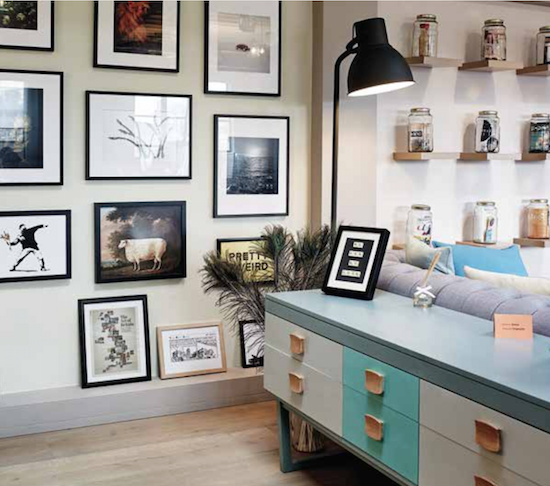Published: Monday August 31 2015 Innocent Drinks, launched by three friends in 1999, is a socially and environmentally responsible company that produces healthy fruit drinks and supports rural development in countries that supply its ingredients. Richard Reed and two friends from Cambridge University had always talked about setting up a business, but four years after graduation they decided it was time to do it. They wanted to produce something that helped people have better lives, while observing the highest ethical standards and putting money back into improving the world. On a brainstorming weekend snowboarding in Davos, they settled on fruit smoothies which they launched as Innocent Drinks in 1999. The launch was not easy: there were difficulties in raising capital, finding distribution channels and even in selecting the brand name. But Innocent products became one of only two independent brands in the top 100 sold in UK supermarkets and is now, under the majority ownership of Coca-Cola, expanding into new markets worldwide. From the start, it has given 10 per cent of its profits to charity, focusing on help for people in the countries that supply its ingredients. ‘The pressure of modern lives makes it hard to eat healthily, and we wanted to make it easier to do that,’ says Richard Reed.
Topics:
Perspectives Pictet considers the following as important: carousel, In Conversation With
This could be interesting, too:
Perspectives Pictet writes House View, October 2020
Perspectives Pictet writes Weekly View – Reality check
Stéphane Bob writes What can investors do in uncertain times?
Stéphane Bob writes Multi-generational wealth
Innocent Drinks, launched by three friends in 1999, is a socially and environmentally responsible company that produces healthy fruit drinks and supports rural development in countries that supply its ingredients.
Richard Reed and two friends from Cambridge University had always talked about setting up a business, but four years after graduation they decided it was time to do it. They wanted to produce something that helped people have better lives, while observing the highest ethical standards and putting money back into improving the world. On a brainstorming weekend snowboarding in Davos, they settled on fruit smoothies which they launched as Innocent Drinks in 1999.
The launch was not easy: there were difficulties in raising capital, finding distribution channels and even in selecting the brand name. But Innocent products became one of only two independent brands in the top 100 sold in UK supermarkets and is now, under the majority ownership of Coca-Cola, expanding into new markets worldwide. From the start, it has given 10 per cent of its profits to charity, focusing on help for people in the countries that supply its ingredients.
‘The pressure of modern lives makes it hard to eat healthily, and we wanted to make it easier to do that,’ says Richard Reed. ‘Our smoothies are freshly made from healthy, life-giving fruit with nothing added and nothing taken away. And because we want to leave the world better than we found it, we use ethically-accredited ingredients and environmentally friendly packaging, observe tough environmental standards on water use and emissions, and donate 10 per cent of profits to charity.’
Richard Reed’s ethical entrepreneurship started at 11, when he was growing up in the north of England. He wanted to support a campaign to save whales and his mother suggested organising a jumble sale to raise money. It raised just £11.38, but showed him that he could make a difference by taking the initiative.

At 16, he started work in a dog biscuit factory, earning £2 an hour for picking up biscuits that fell off the production line. When he asked for a brush, he was told that he was that brush — so he resigned on his first day. Instead, he mowed lawns for £2.50 an hour, also employing friends for £2.25 an hour. ‘It was more enjoyable than working in a factory, and I learnt a lot.’
By the time he arrived at university in 1991, he was a fan of house music which no-one was playing in Cambridge. So he taught himself to DJ and organised club nights with Adam Balon and Jon Wright, two college friends who went on to become his business partners. They made money and found that it was more fun than just being a customer.
When they finally settled on smoothies, they spent £500 on fruit to make 1,000 bottles which they sold at a music festival. Customers were asked to put the empty bottles in either a YES bin or a NO bin, according to whether they thought the three should leave their jobs to make smoothies. By the end of the festival, the YES bin was full, and the next day the three entrepreneurs resigned.
But then came the unexpected problems. ‘We were inspired by friendship and driven by our passion, vision and hopes rather than analysis or business experience. And everyone said it wouldn’t work: they wouldn’t lend us money and they wouldn’t work with us as a manufacturer.
‘It was a real slog at first, and none of us were confident that it would succeed — but I pushed on because I liked the vision and didn’t want to go back to my job! There was no interest in financing Innocent among banks, business angels, venture capital firms or the government’s small business loan organisation. And we were up against the biggest soft-drink makers and also the supermarkets who would be our customers but would produce own-label smoothies if we were successful.’
Eventually they raised £250,000 from Maurice Pinto, a wealthy US businessman in his 70s who said he didn’t like the idea but would back the team. That initial investment lasted ten years, and took Innocent into seven countries and to annual turnover of more than £100 million.
One other pre-launch obstacle was branding. To highlight the natural, pure and fresh qualities of their smoothies, they settled on ‘Naked’. But when Richard Reed went to register the brand, he found it was already taken. After a frantic weekend in a local library, he eventually settled on a synonym: Innocent.

Their business plan said that the smoothies would be launched by visiting ten stores a day, of which six would take them and five of those would continue to stock them. They calculated that the average store would sell six bottles a day, leading to forecast annual turnover of £6 million in five years. ‘We sold three cases on the first day. But the minimum production rate was 400 cases a day and we were nowhere near selling that. It was an expensive product at £1.70 a bottle when a can of coke cost 60 to 70 pence.
‘So over the first weekend, we went to the 50 best targets in West London and gave each of them three cases. Most of them reordered because they had sold well, and we were then able to persuade wholesalers to distribute it.’
Other challenges included sourcing environmentally-friendly packaging and developing other environmental standards such as for water usage and emissions. A breakthrough came with the development of the first fully recyclable plastic bottle which manufacturers had said was impossible.
The 10 per cent commitment to charity began with an informal selection of good causes connected to the brand or the founders. The first was to finance tree-planting by primary school children, followed by a scheme to send cows to Indian villages. As the business grew, the partners felt that they should be more business-like. So they created a professionally-run foundation which now works with 13 charities to help the hungry, principally in countries where the fruit comes from.
Innocent also encourages employees to become involved through Innocent scholarships: in return for a week’s wages and travel costs, employees spend two weeks visiting a charity and transferring skills such as IT, marketing or operations' knowhow. Staff travelling abroad can claim in-country expenses to go and see the charities the foundation supports and find out how they are progressing.
‘It has contributed to Innocent’s success. We attract what I call ambitious altruists – super-bright, hard-working people who want to win, but in an ethical way. The ethical and charitable aspects of the business motivate and retain staff.’
In 2009, Innocent sold a minority stake to Coca-Cola, which became a majority stake a year later and rose above 90 per cent in 2013. The three founders remain on the Innocent board as advisers, and have seen sales rise and new products introduced such as vegetable juices. Internationally, Innocent has expanded into new markets, including Russia.
‘The relationship with Coca-Cola has worked brilliantly,’ says Richard Reed. ‘They needed a European juice business, and as the owners of their own global brands they are excellent brand stewards for Innocent. Our last management task was to appoint our replacements from the people we had worked with, who were able to show what they could do once we moved on — they have renewed the business in many ways.’
Today, the three friends are still working together at Jamjar Investments, the consumer venture capital fund which they set up in 2013. They invest in strong teams providing a consumer service or product which can be digital or offline. One of the most successful has been Graze.com, an online business whose managing director is ex-Innocent and which sells healthy snacks sent to consumers by post.
‘We like to work with entrepreneurs on consumer-facing businesses that could use great design to connect with their markets. We also want the businesses we support to do something that improves the world, perhaps in health or education. We can bring a bit of cash, a bit of experience and a bit of network to help them go faster.
‘We’re conscious that we spent a year trying to raise money before launching our business, and everyone said no. One guy took a gamble on us, and without him there would have been no Innocent. We want to give the next generation of entrepreneurs the opportunity we had.’
